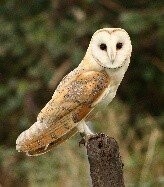OWL Curriculum
Outdoor Wellbeing Learning & Eco School

Felsted Primary School is committed to teaching the children about the environment. We use our extensive surroundings as a resource. The school has a wildlife area, including a pond, and a vegetable garden. In addition, children are taken for environmental walks into the surrounding area, for example Reception children take part in 'Welly Wednesday', when they use the Flitch Way as part of their environmental learning.
Each class has two ECO monitors who are voted into the position by the other children. Their job is to save energy by turning off electrical appliances when they are not needed and also to keep the classroom environment tidy. They also meet with Mrs Collins and Miss Wiseman half termly as part of the eco committee to discuss how we can implement further changes/improvements.
We have achieved our bronze eco schools award. We are now working towards our silver and then the green flag award.
Evidence shows that time spent in nature is good for our health and wellbeing. The activities and games encourage children to reconnect with the outdoors, reengage in learning and learn about the importance of natural resource management.
The Felsted Primary School OWL Curriculum has been designed to use the natural environment as a relaxing and stimulating environment to facilitate health and wellbeing. These activities foster creativity, playfulness and imagination, as well as respect and knowledge of natural landscapes and processes.
Our two main objectives are:
-
Learners can develop positive, informed behaviours that encourage them both to care for and respect themselves and others. These behaviours support learners’ sense of self-worth, their overall mood and energy levels.
-
Supporting learners to develop strategies which help them to regulate their emotions can contribute towards good mental health and emotional well-being.
According to the Open University’s OPENspace Research Centre, there is considerable evidence suggesting that time spent outdoors, in nature, increases life expectancy, improves wellbeing, reduces symptoms of depression and increases a child’s ability to function in school.
In addition to better physical health, teachers report improved concentration, better ability to focus and learn, increased productivity, better behaviour, and the fostering of more positive relationships between adults and children and amongst peer groups, when children are more active and spend more time outside during the day.
-
OWL Planning Resources by Key Stage
All children to participate in:
-
Gardening & Nature spotting: Wildlife, digging and gardening areas are a great place to start. Gardening is often used as a therapeutic intervention in mental health. And under the guise of planting, digging, growing, watering, nurturing and picking plants, children can learn about biology and life-cycles, geography, climates and the environment.
-
STEM learning: Modern outdoor resources designed to aid teaching of STEM subjects outside, water walls, damming stations, kinetic play equipment, all of which require physical input, increasing opportunities for movement during the school day.
-
Structured activities that involve relating directly to aspects of the natural world, water cycles, energy and the environment, conservation, for example, give children the chance to establish respectful and meaningful relationships with their immediate environment and the world they find themselves in.
OWL learning activities & curriculum links currently in place
|
Foundation Stage:
|
Key Stage 1:
|
|
Lower Key Stage 2:
|
Upper Key Stage 2:
|
